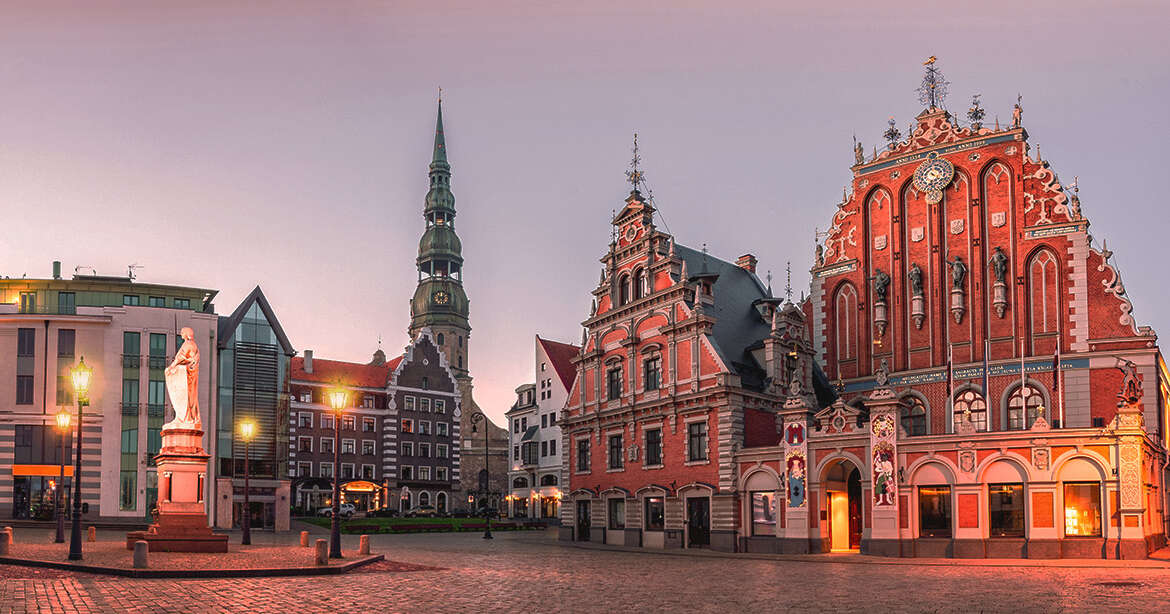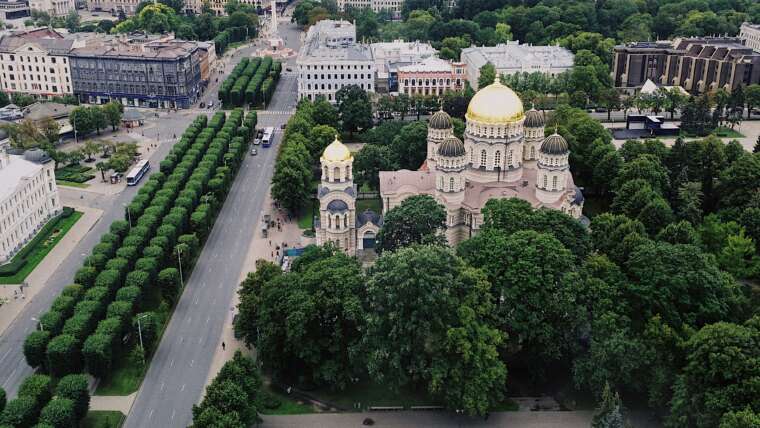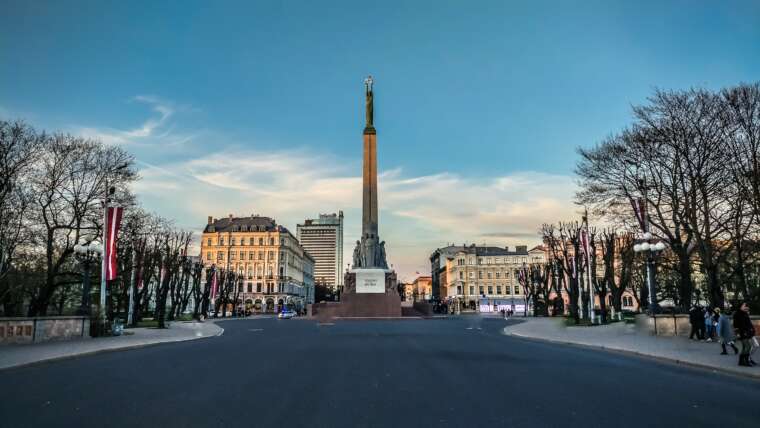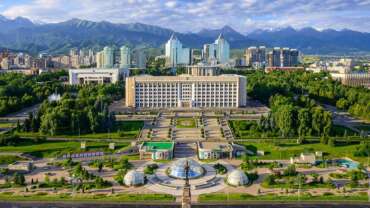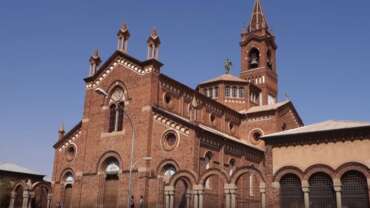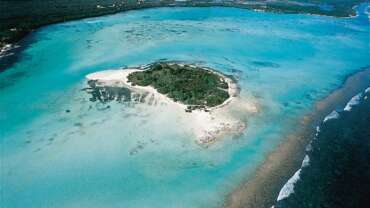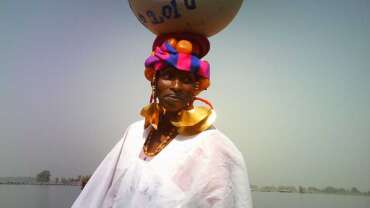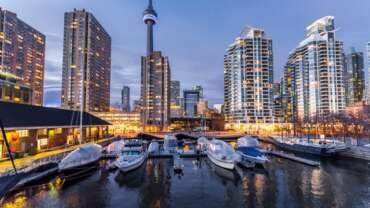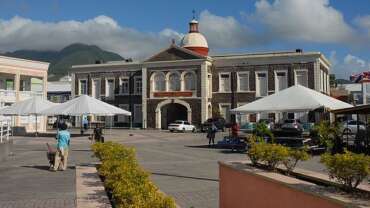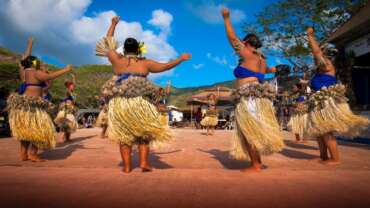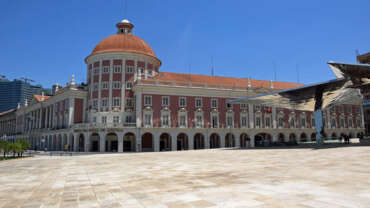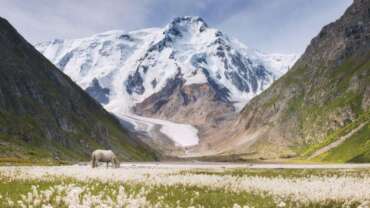Latvia - The Land that Sings
Latvia is a country on the Baltic Sea between Lithuania and Estonia. Its landscape is marked by wide beaches as well as dense, sprawling forests. Latvia’s capital is Riga, home to notable wooden and art nouveau architecture, a vast Central Market and a medieval Old Town with St. Peter’s Church. Riga’s museums include the Latvian Ethnographic Open-Air Museum, showcasing local crafts, food and music.
Let your dreams come true – visit Latvia, one of the most incredible destinations in the Baltic States! Have you ever imagined, that the tradition of decorating Christmas tree is originated in Riga, Latvia? Yes, indeed, quite a bit unexpected! Actually, the whole visiting and traveling to Latvia phenomenon is giving a surprise with every step, especially if you pick one of our amazing Latvia tours! Rich cultural and historic heritage, ancient sacred sites and secrets, contemporary and modern environment, unbelievably beautiful churches and all deep traditions…
While considerably small in size, Latvia is surprisingly rich in places to see, feel and save in mind forever!
History of Latvia
Baltic tribespeople settled along the Baltic Sea and, lacking a centralized government, fell prey to more powerful peoples. In the 13th century, they were overcome by the Livonian Brothers of the Sword, a German order of knights whose mission was to conquer and Christianize the Baltic region. The land became part of the state of Livonia until 1561. Germans composed the ruling class of Livonia and Baltic tribes made up the peasantry. German was the official language of the region.
Poland conquered the territory in 1562 and occupied it until Sweden took over the land in 1629, ruling until 1721. The land then passed to Russia. From 1721 until 1918, the Latvians remained Russian subjects, although they preserved their language, customs, and folklore.
The Russian Revolution of 1917 gave Latvia the opportunity for freedom, and the Latvian republic was proclaimed on Nov. 18, 1918. The republic lasted little more than 20 years. Plagued by political instability, Latvia essentially became a dictatorship under President Karlis Ulmanis. The country was occupied by Russian troops in 1939 and incorporated into the Soviet Union in 1940. German armies occupied the nation from 1941 to 1944. Of the 70,000 Jews living in Latvia during World War II, 95% were massacred. In 1944, Russia again took control.
Latvia Declares Independence and Seeks to Protect Its Ethnic Identity
Latvia was one of the most economically well-off and industrialized parts of the Soviet Union. When a coup against Soviet president Mikhail Gorbachev failed in 1991, the Baltic nations saw an opportunity to free themselves from Soviet domination and, following the actions of Lithuania and Estonia, Latvia declared its independence on Aug. 21, 1991. Most other nations quickly recognized their independence, and on Sept. 2, 1991, President Bush announced full diplomatic recognition for Latvia, Estonia, and Lithuania. The Soviet Union recognized Latvia’s independence on Sept. 6, and UN membership followed on Sept. 17, 1991.
Because Latvians’ ethnic identity had been quashed by foreign rulers throughout its history, the new Latvian republic set up strict citizenship laws, limiting citizenship to ethnic Latvians and to those who had lived in the region before Soviet rule in 1940. This denied about 452,000 of the country’s 740,000 ethnic Russians of citizenship. But in 1998, a referendum passed easing the citizenship rules.
In June 2003, President Vike-Freiberga easily won reelection. In Dec. 2004, Aigars Kalvitis became prime minister, forming the twelfth government since Latvia’s independence from Russia. The nation became a member of both the EU and NATO in 2004.
Interesting facts about Latvia
Although rather small country (almost 2 million inhabitants) Latvia has welcoming people, gorgeous nature and pagan festivities… Check out these amazing but true facts about beautiful Latvia!
1. One of the last corners of Europe to join Christendom, Latvians are still very much pagans at heart. They worship nature by jumping over bonfires at Midsummer Eve, and many surnames are about birds, animals or trees.
2. Latvians are a people to look up to. Latvia has one of the world’s tallest women, with the average lady coming in at an impressive 170 cm. The men are no midgets either, holding fourth place.
3. Riga’s Central Market is one of Europe’s biggest markets. It is famed for its pavilions housed in giant zeppelin hangars left behind by the German army after World War I.
4. With almost 500 km of coast, Latvia has tons of beaches. There’s space for everyone, whether you want fun in the sun or miles of sand to yourself, and best of all its all open to the public.
5. Over half its territory is covered by forest, so Latvia is a very green place. Locals love to pick mushrooms and berries, and at Midsummer young couples duck into the woods to look for the mythical flowering fern. No such plant exists, but the search goes on…
6. One of the attractions of the port city Liepaja is a night in jail. The haunting Karosta district offers accommodation in the old military lockup complete with Soviet-style treatment.
7. Latvia has a huge capital relative to its tiny population, with over one third of the population living in Riga. But you wouldn’t know it on a summer weekend when everyone heads for their cottage in the countryside.
8. With over 800 Art Nouveau buildings, Riga has one of the world’s greatest galleries of this joyful style. Alberta iela is a street almost entirely created by Art Nouveau genius Mikhail Eisenstein, and his son film director Sergei Eisenstein was one of the founders of modern cinema.
9. You don’t need to go to a health food store in Latvia to find organic food, because locals find fantastic ingredients on their own. From birch sap juice in spring to berries in summer and mushrooms in autumn, Latvians are a nation of foragers.
10. With over 1 million folk songs, Latvians love to sing. You can catch over 10,000 of them on stage at once at the Song Festivals, and opera stars like Inese Galante, Elīna Garanča, Aleksandrs Antoņenko and Egils Siliņš delight audiences at home and abroad.
11. Latvia is Wifi paradise. It has one of the world’s fastest internet connections, and with over 800 free connection points in Riga, you don’t even need to pay for it.
12. The Ventas Rumba in Kuldīga is the widest waterfall in Europe, and in spring you can see fish jumping up the rapids as they head for spawning sites.
13. Next time you put on a pair of jeans, thank Latvian-born tailor Jacob Davis. In 1871 in Reno, Nevada, he invented denim as a tough material for trousers, then made a fortune in partnership with fabric merchant Levi Strauss.
14. Chugging down 78 litres of beer per capita every year, Latvians love a cold brew on a summer’s evening. The country also boasts one of the world’s most northerly outdoor vineyards in the village of Sabile.
15. Latvia’s national sport is ice hockey, and it punches well above its weight for a small country. Dozens of Latvians play in the NHL and KHL, and the national team’s fans are regarded as the loudest and most passionate around.
16. Latvia has almost 20 hours of daylight at midsummer, and locals make the most of it by partying outdoors and relaxing in nature. The lovely golden light typical of these latitudes has obsessed generations of painters and photographers.
17. Latvia is a small country, but at one stage it had colonies abroad. In the 1600’s, the independent Duchy of Courland covering western Latvia was a powerful maritime nation and controlled part of Gambia in Africa and the Caribbean island of Tobago.
18. Legendary painter Mark Rothko was born in Daugavpils, southeast Latvia, before finding fame in the US. Sold in 2014 for a cool 140 million euros, his No. 6 (Violet, green and red) is one of the priciest paintings of all time.
Cultural Life of Latvia
Shaped by man and nature
The Latvian national identity has developed over a 3,000 year period. Latvian culture has always been closely tied to the Northern European land and nature that Latvia’s inhabitants have depended on for survival. The forests, rivers and meadows on the southern shores of the Baltic Sea, like the sea itself, have shaped Latvia’s history, politics and economy, and as a result, have formed the lifeblood of its living culture.
European influences
While the roots of modern Latvian language and culture date back thousands of years, the 13th century marked the beginning of a series of foreign invasions and influences. German, Swedish and Polish warriors and traders brought European culture to Latvia, at times threatening the existence of the Latvian culture, at times strengthening it through adversity, and eventually co-existing along side it.
Dainas – a uniquely Latvian phenomenon
Centuries of foreign rule prevented Latvians from recording their history and traditions in written form. Latvian culture was instead preserved and manifested in folklore that displayed the collective wisdom and beliefs of the Latvians’ ancient tribal ancestors. A uniquely Latvian cultural phenomenon, folk songs, or dainas, date back well over a thousand years. Rich with tradition, literature and symbolism, the dainas serve as an oral record of Latvian culture. By the 19th century, more than 1.2 million texts and 30,000 melodies were identified. In the 21st century, these songs continue live as an essential part of Latvian contemporary holiday celebrations and social life.
The ‘Singing Revolution’
This powerful tradition of song played a central role in Latvia’s National Awakening in the second half of the 19th century and led to the first Latvian Song Festival in 1873. The Song Festival, involving massed choirs of tens of thousands of participants was a central focus of national identity during Latvia’s first period of independence from 1918 until 1940. It survived as a distinctly national event and a bastion of Latvian culture despite 50 years of forced Sovietization during the Soviet occupation, and spearheaded Latvia’s ‘singing revolution’ in the late 1980’s. The political and economic forces that lead to the restoration of Latvia’s independence in 1991 were driven by powerful, centuries- old cultural forces.
Contemporary culture
Latvian traditions still play a central role in the Latvian identity today. This uniquely ‘Latvian’ culture is woven through its literature, music, theatre and the visual arts. Yet, the legacy of foreign rule has also given Latvia a second, European culture. As a distinctive Latvian identity emerged during the National Awakening in the 19th century, so did an appreciation for the achievements of other cultures. Latvians enthusiastically embraced all the classical arts – literature, painting, theatre, symphonic music, architecture, opera, ballet and film. At the turn of the century the Latvian poet Rainis, and painters Janis Rozentāls and Vilhelms Purvītis had established international reputations. In the 1920’s and 1930’s Latvia’s ‘Rīga group’ of painters became known internationally.
During Soviet rule, Latvia’s passion for the arts routinely broke through the rigid ideological constrictions that Moscow tried to impose on its Communist empire. Latvia’s filmmakers established Rīga as the ‘Hollywood’ of the Soviet Union, while its provocative fashion designers made it the avant-garde design centre of the otherwise staid and conservative Soviet Union. The late Juris Podnieks gained world recognition in the 1980’s for his incisive and uncompromising documentary films that exposed the dark and deteriorating underbelly of the collapsing Soviet empire.
Artists of international renown
With independence, came a revival of Latvia’s traditional and cosmopolitan cultures. Latvia’s National Opera – the ‘White House’ of Rīga – was one of the first buildings to be renovated after the restoration of independence in 1991 and is the centrepiece of a flourishing cultural life. Latvia’s world class opera singers such as Inese Galante, Sonora Vaice, Egils Siliņš and Elīna Garanča, today perform in opera houses throughout Europe.
Pēteris Vasks is considered one of the finest contemporary composers in the world, while Rīga-born violinist Gidons Kremers and his Kremerata Baltica chamber orchestra won a Grammy in 2002. Violinist Baiba Skride took First Prize in the Queen Elizabeth International Music Competition in Brussels in 2001 and has been hailed as one of the most outstanding young violinists in all of Europe. The creative energy of Latvia’s innovative post-modern folklore band, Iļģi, has established them as stars in the growing genre of world music. Not to be left behind by classical and traditional artists, Latvia’s youthful pop-rock band Brainstorm has gained legions of fans across Europe through its successes at Eurovision and on MTV. In 2002, Latvia surprised Europe when Marie N. (Marija Naumova) won the Eurovision Song Contest with her song, ‘I Wanna.’
Rīga – the hottest city in the north
The rapid renovation of Rīga’s historic centre has revealed hundreds of examples of distinctive Jugendstil architecture, leading some to assert that Rīga may be the Jugendstil capital of Europe. The historical centre of Rīga was designated a UNESCO World Heritage site in 1997.
A hundred years ago Rīga was known as the ‘Paris of the North’. Now Rīga has blossomed as a creative centre for the arts once again. Local and visiting art exhibits and the opera, theatre and ballet, compete with night clubs and discos that rock with jazz, blues and the latest electronic fusions of hip hop and dance music. After 14 years of independence, Rīga is now called ‘The Second City that Never Sleeps’, and ‘The Hottest City in the North’.
A multi-faceted, dynamic culture
The vibrancy of cultural life in Latvia is a product of talented artists, performers and writers that honed and developed their skills in cities and regions throughout Latvia. Many continue to live and work in their home towns or rural settings, blending the influences of traditional roots with the modern, cosmopolitan influences of the nation’s capital. This spiritual desire to live and flourish as Latvians, as Europeans, and as the shapers of the 21st century, is a phenomenon that continues to shape Latvia’s multi-faceted, dynamic culture.
Discover Latvia
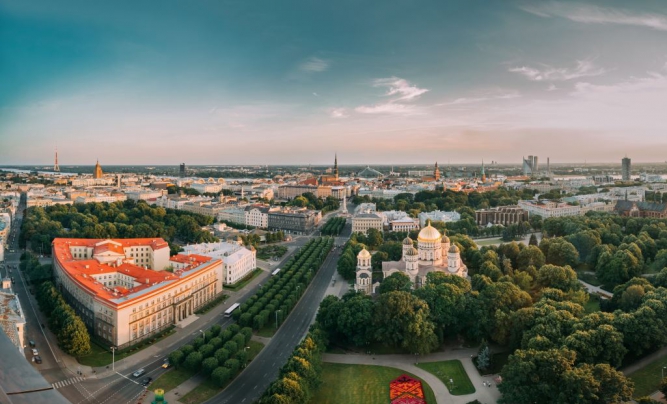
Discover the small Baltic country of Latvia, starting with its capital city of Riga. A legend has it that Riga, – a city full of cultural and historic attractions, will “never be complete, and will be (for)ever changing and developing.”
Later during your vacation, experience the diversity of Latvia’s regions, from the wild shorelines of Kurzeme to the delightful potters, who live in Latgale, the “land of blue lakes.”
These are just a few ideas for vacationing in Latvia, either with your family or best friends.



